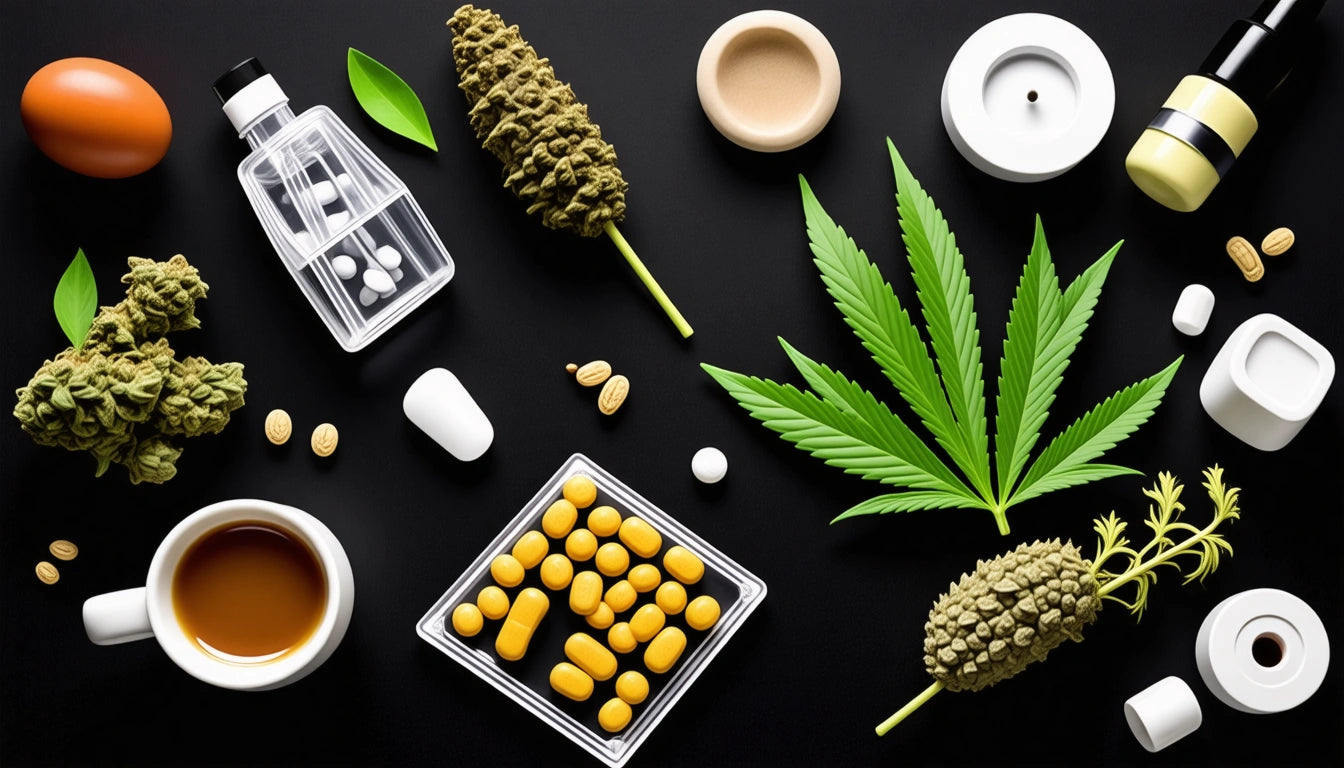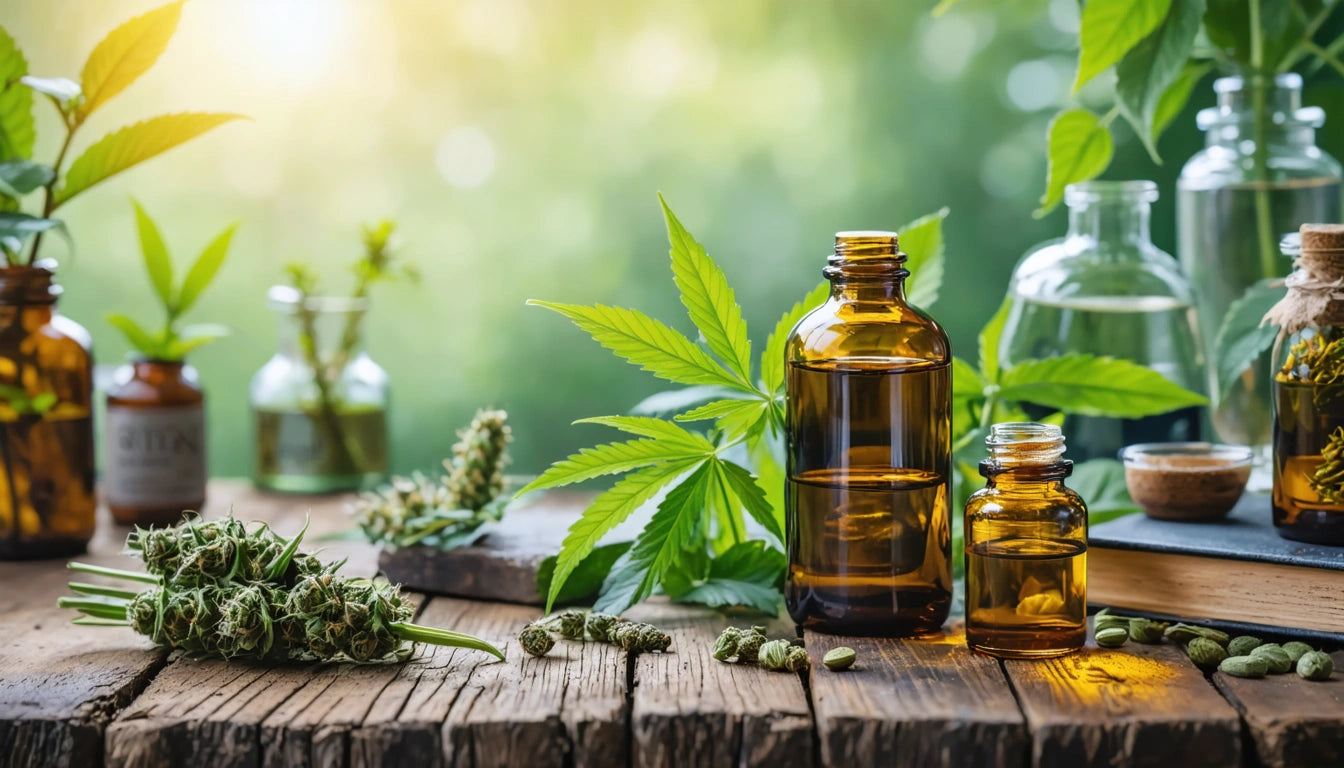Table of Contents
Understanding Why Weed Increases Heart Rate and How to Manage It
Many cannabis users have experienced a racing heart after consumption, which can sometimes lead to anxiety or discomfort. This common physiological response raises questions about why weed increases heart rate and what can be done to manage this effect. Understanding the mechanisms behind this reaction can help users make informed decisions about their consumption habits.
Why Cannabis Affects Heart Rate: The Science Explained
Cannabis contains compounds called cannabinoids that interact with the body's endocannabinoid system. THC (tetrahydrocannabinol), the primary psychoactive component, plays a significant role in cardiovascular effects.
According to research on cannabis and heart rate, THC can increase heart rate by 20-50 beats per minute. This occurs because THC stimulates the sympathetic nervous system, which controls the body's fight-or-flight response.
The process works as follows:
- THC binds to CB1 receptors throughout the body
- This binding reduces parasympathetic activity (the rest-and-digest system)
- Simultaneously, it increases sympathetic nervous system activity
- The result is vasodilation (widening of blood vessels)
- To compensate for dropping blood pressure, the heart beats faster
This tachycardia (increased heart rate) typically begins within minutes of consumption and can last for up to three hours, depending on consumption method and individual factors.
Factors Influencing Heart Rate Response to Cannabis
Tolerance and Experience
Regular cannabis users often develop tolerance to the heart rate effects. First-time or occasional users typically experience more pronounced cardiovascular responses than frequent consumers.
Consumption Method
How you consume cannabis significantly impacts how quickly and intensely it affects your heart rate:
- Smoking or vaping delivers THC to the bloodstream almost immediately
- Edibles produce a delayed but potentially longer-lasting effect
- Tinctures and sublingual products fall somewhere in between
Strain and Cannabinoid Profile
Different cannabis varieties contain varying levels of cannabinoids and terpenes. High-THC strains typically cause more significant increases in heart rate than CBD-dominant varieties. In fact, studies suggest that CBD may potentially moderate some of THC's effects on heart rate.
Managing Rapid Heart Rate from Cannabis
If you're wondering how to stop fast heart rate from weed, several approaches can help reduce this side effect:
Choose Lower-THC Products
Products with lower THC concentrations or higher CBD:THC ratios may reduce cardiovascular effects. Consider trying products with a 1:1 or higher CBD:THC ratio.
Proper Storage and Humidity Control
Properly stored cannabis maintains its intended potency and cannabinoid profile. Using humidity control packs for cannabis storage helps preserve terpenes and prevents THC degradation, allowing for more predictable effects and potentially less cardiovascular stress.
Hydration and Breathing Techniques
Staying well-hydrated before consuming cannabis may help moderate its effects. If you experience a racing heart, try deep breathing exercises:
- Inhale slowly through your nose for 4 seconds
- Hold your breath for 2 seconds
- Exhale gradually through your mouth for 6 seconds
- Repeat until your heart rate normalizes
Environmental Factors
A calm, comfortable environment can reduce anxiety that might exacerbate heart rate increases. Consider factors like:
- Temperature (avoid excessive heat)
- Noise levels
- Familiar surroundings
- Presence of trusted friends
These environmental considerations can significantly impact your physiological response to cannabis.
Medical Considerations and Risk Factors
While temporary increases in heart rate are normal for most healthy individuals, certain conditions warrant caution:
Pre-existing Cardiovascular Conditions
People with heart conditions, hypertension, or arrhythmias should consult healthcare providers before using cannabis. The cardiovascular effects of cannabis can potentially worsen these conditions.
Research suggests connections between cannabis use and blood pressure changes, which may further complicate matters for those with heart issues.
Medication Interactions
Cannabis may interact with cardiovascular medications, including beta-blockers, calcium channel blockers, and blood thinners. These interactions could potentially enhance or reduce medication effectiveness.
Product Selection Strategies for Heart-Conscious Users
If you're sensitive to the heart rate effects of cannabis, consider these approaches to minimize discomfort:
Microdosing
Starting with very small amounts of cannabis allows you to gauge your body's response while minimizing unwanted effects. Begin with the lowest possible dose and increase gradually only if needed.
Balanced Products
Products containing both THC and CBD may offer more balanced effects. CBD has been shown to potentially moderate some of THC's effects on heart rate and anxiety.
Consumption Timing
Consider when you consume cannabis in relation to other activities. Avoid using it before exercise or stressful situations that naturally increase heart rate. Some users find that cannabis affects metabolism and digestion, so timing consumption around meals may also influence cardiovascular response.
Understanding why weed increases heart rate empowers users to make informed choices about their consumption. By selecting appropriate products, using proper storage methods, and implementing practical strategies, most consumers can enjoy cannabis while minimizing uncomfortable cardiovascular effects.











Leave a comment
All comments are moderated before being published.
This site is protected by hCaptcha and the hCaptcha Privacy Policy and Terms of Service apply.